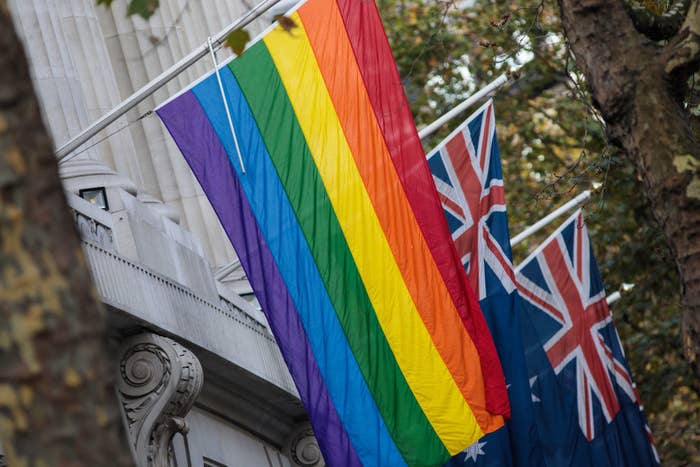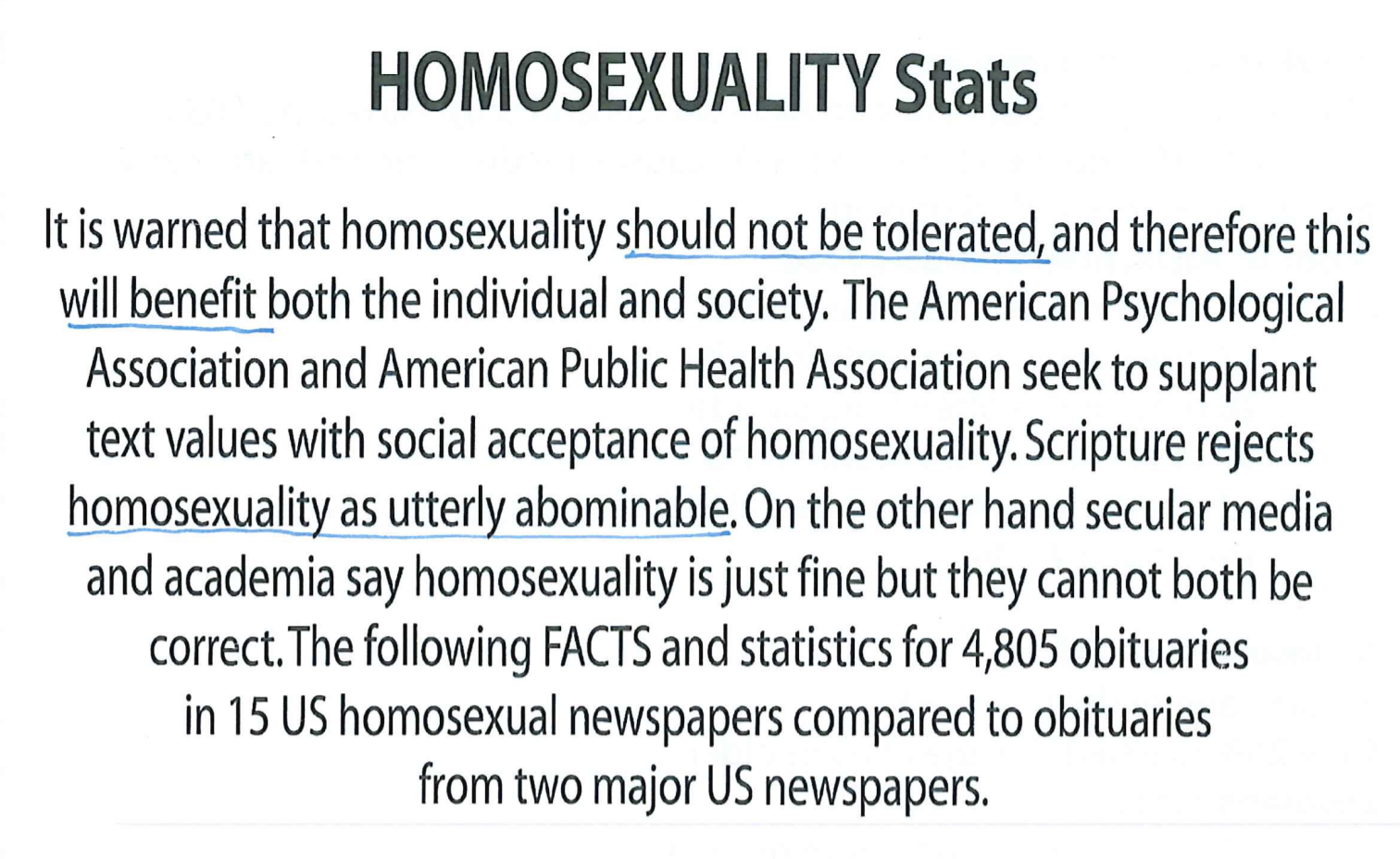
A man who handed out anti-gay flyers in the Australian state of Tasmania five years ago has lost a court bid to avoid making a public apology for his behaviour.
James William Durston distributed copies of a flyer titled "Homosexuality Stats" in the Sandy Bay area of Hobart in 2013.
It said, among other things, that "homosexuality should not be tolerated" and that scripture rejects homosexuality as "utterly abominable".
It also claimed gay men and lesbians will experience an earlier death than their heterosexual counterparts, based on a number of alleged statistics — including one that said lesbians are 466 times more likely to die in a traffic accident.
Robert Williams, a gay man, complained to the Tasmanian Anti-Discrimination Tribunal in May 2013, saying the flyers demonstrated "bigotry, prejudice and hatred is still a plague in our community".

He argued the research on which the statistics were allegedly based had been discredited.
"[Williams] noted that if these facts were true, there would be an outrage in the insurance industry and they would not insure lesbians," the judgement reads.
In 2015 the tribunal upheld Williams' complaint and ordered Durston to publish an 85mm x 94mm ad in The Hobart Mercury newspaper apologising for distributing the flyers, and to not do it again.
But Durston appealed the decision in the Tasmanian Supreme Court, where on Thursday his argument was rejected by Justice Michael Brett, who labelled the flyer a "direct attack" on gay people that was intended to demean them.
Brett upheld the tribunal decision that Durston had breached the Tasmanian Anti-Discrimination Act by distributing the flyer, which both offended, humiliated, insulted or ridiculed gay people and also incited hatred towards, severe contempt for, or severe ridicule of them.
Durston, who was unrepresented, argued on appeal that he was exercising his right of "freedom of communication on governmental or political matters".
But Brett found the parts of the act Durston had fallen foul of did not breach the implied right of political communication.
"The freedom of political communication, and the capacity of members of the community to express themselves freely, is not absolute," he wrote.
"As with any other aspect of the conduct of a member of a free and liberal society, the consequences of that conduct on others will inform the appropriate boundary of restriction on individual freedom."

Brett also ruled that an exemption preventing people from breaching the act if their actions are in good faith and in the public interest did not apply to Durston.
The exemption would protect "robust debate" about homosexuality if it was respectful and made a conscientious effort to avoid offence, humiliation, intimidation, insult, ridicule, and incitement of hatred or severe contempt, Brett said.
Durston's flyer, on the other hand, used inflammatory language, made no attempt at balance, and was arbitrarily placed in people's letterboxes, the judge said.
"The overall tenor of the material is in the nature of a direct attack on the lifestyle of persons with a particular sexual orientation, and therefore on the human dignity and social legitimacy of such persons," Brett wrote.
"It seeks to separate those persons out from the rest of society, in a demeaning and offensive way. It is disingenuous in the extreme to claim that the material was only revealing facts that might generally assist the public."
The upholding of the tribunal decision means Durston will have to apologise, or face a fine.
The wording of the apology he was ordered to make acknowledges the breach of the act and says: "I accept that the aim of this Act is to promote tolerance, understanding and acceptance in the community. I accept that the Act sets limits on what can be said and done in public."
Williams, the man who filed the complaint five years ago, told BuzzFeed News in a statement the decision reinforced his pride in being Tasmanian.
"Tasmania is leading the nation when it comes to protecting citizens from hate speech," he said. "The protection offered by our laws and our courts promotes inclusion, mature political debate, and respect between all citizens regardless of who we are."
The decision comes in the same week as another flyer, purporting to be from Jesus, was put in letterboxes in Surry Hills, a Sydney suburb with a high population of gay couples.
Got some post from Jesus and he seems PISSED.
The 2017 postal survey on the issue of same-sex marriage saw a temporary proliferation of anti-LGBT flyers, many of them anonymous, distributed to homes across Australia.
